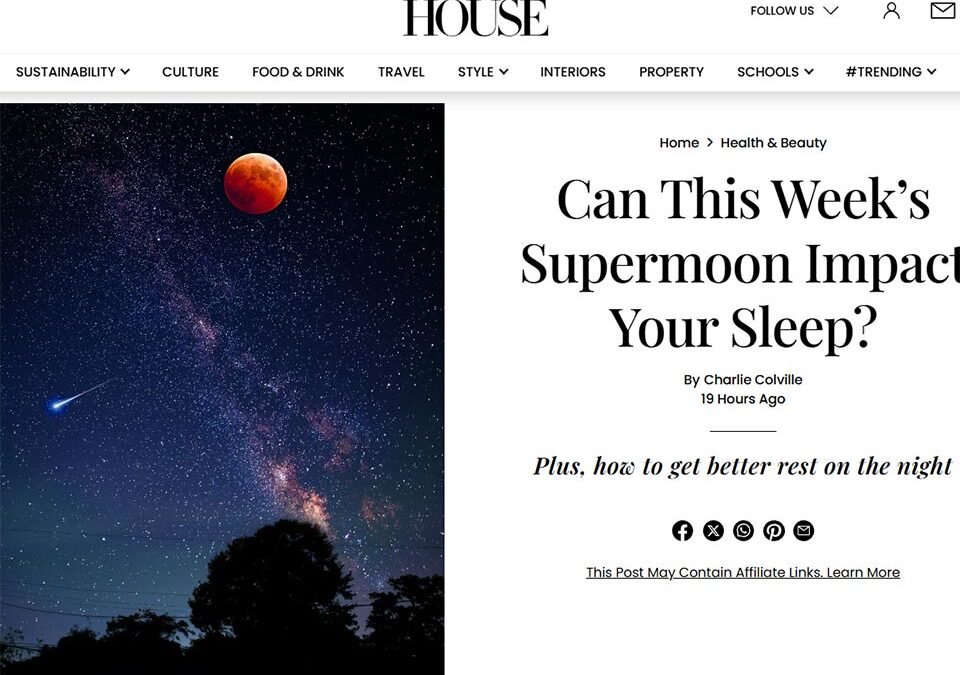
STARS ABOUT STARS: Unraveling the Mysteries of Picasso
15 October 2024
Glamour. November’s Super Beaver Moon 2024 and What It Means for You.
15 November 2024Can This Week’s Supermoon Impact Your Sleep?
All eyes will be locked on the night sky later this week, as the fourth and final supermoon of the year makes an appearance. Known as the Beaver Moon, this celestial event is set to be the biggest one yet – as well as the most disruptive. While studies are still in their infancy, it’s thought that a supermoon – as well as any full moon – can impact sleep to the point of disruption. Intrigued, we asked the experts to weigh in: can the moon really make it harder to fall asleep? Let’s find out.
What Is A Supermoon?
A supermoon is essentially a full moon that occurs when the moon is at its closest point to Earth – known as perigee – in its elliptical orbit. This makes the moon appear larger and brighter than usual, and sometimes it can even take on a different hue.
‘The term “supermoon” did not originate from astronomers but from astrologers,’ adds astrological expert Iryna Wood. ‘It was first introduced by astrologer Richard Nolle in an article for Dell Horoscope magazine in 1979. Nolle defined a supermoon as a new or full moon that occurs when the moon is at its closest approach to Earth in its orbit, known as perigee.
‘For a supermoon to occur, two things need to happen,’ she continues. ‘The moon must reach its closest point to Earth in its 27-day orbit and be in its full phase, which occurs about every 29.5 days when it’s fully illuminated by the sun.’
And, on average, we have around three or four supermoons a year – which can make their supposed impact on our sleep all the more important to be aware of.




